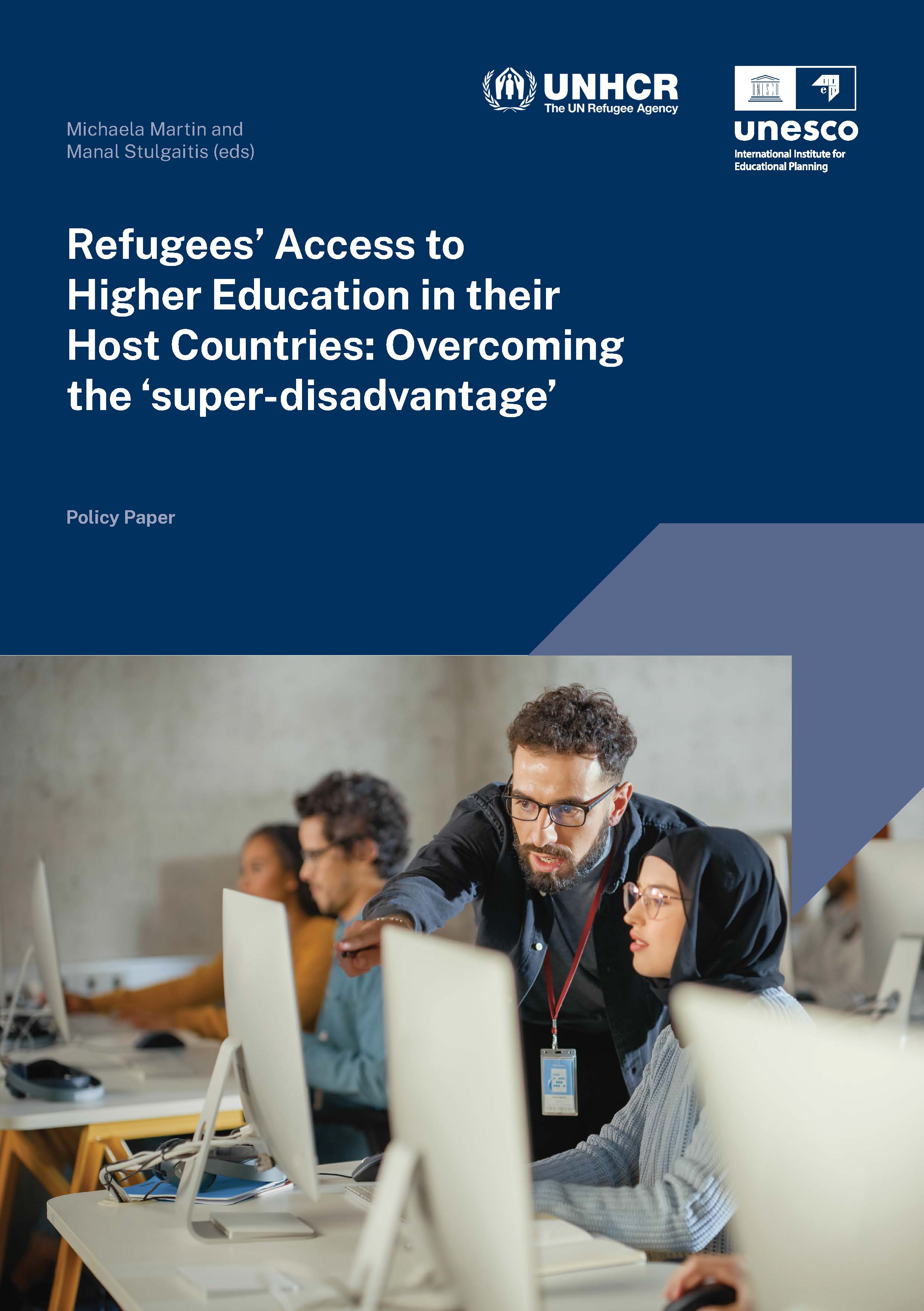shutterstock_21024514211.jpg

Globally, three percent of refugees enroll in higher education, according to 2021 estimates. This is just a slim proportion of the 235 million students enrolled worldwide. Refugee students face many obstacles when trying to access their host country’s higher education system. These may include legal restrictions, prohibitive tuition fees and living costs, constraining language requirements, difficulties in getting their prior credentials recognized, as well as additional barriers facing female students, among others.
For a young refugee, enrolling in higher education can transform one’s life. It offers skills development, economic integration, employment opportunities and hope for a brighter future. Beyond the individual level, refugee involvement in higher education can support the economy and social development of the host country. With refugees spending longer periods in their host countries, their inclusion in higher education becomes even more important.
However, only three percent of refugees are enrolled worldwide, compared to the global gross enrollment ratio of 40 percent in 2020. The United Nations High Commissioner for Refugees (UNHCR) has set the 15by30 target – meaning that by 2030, 15 per cent of refugees should gain access to higher education.
To support host policy-makers, planners, and higher education institutions with this shared goal, IIEP-UNESCO and UNHCR have released the Policy Paper, Refugees’ Access to Higher Education in their Host Countries: Overcoming the ‘super-disadvantage’.
The Paper presents 15 evidence-based recommendations on how host countries can feasibly support refugees’ access to their national systems, arguing strongly for an ‘equality of opportunity approach’ in terms of national policies, as well as for caring measures at the level of higher education institutions.
To put the recommendations into context, the Paper zones in on the experiences six countries – France, Ethiopia, Egypt, Germany, Norway, and Turkey – with considerable refugee populations. The Paper also outlines both the benefits – and challenges – of including refugees in host systems.
Finally, the recommendations address a combined set of measures relating to policy, funding and access requirements, recognition of prior learning, to preparation and integration measures for refugee students.
How to move forward?







